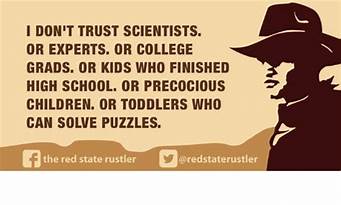Appeal to Experts Example

Here is an illustration of how you might go about doing the “appeal to experts” assignment given in class. A couple of things to note here: (1) You need not adopt any particular method of bibliographic reference, but make it very easy for me to find the original source, and cite it after every sentence in which you refer to it. (2) It need not be pretty. It’s not an essay. Just present the information as clearly as you can.
ASSIGNMENT:
Some claim that creatures evolved from other forms of life. Is this true?
Answer this question by constructing an appeal to experts argument that meets all of
the criteria given in class. Document your findings as follows:
1. State what profession(s) have the relevant expertise on the issue.
2. Present two sources to support your conclusion about whether creatures evolved from other forms of life. Use at least two of the four methods given in class (i.e., a literature review in a professional journal, a textbook, a large professional organization, a poll of experts). You must include a readable pdf or scan of the page on which you have highlighted the passage where your source indicates the consensus view on the topic. Be sure to include full bibliographic information for each of your sources including a URL if available.
3. For each source, document how it meets the criteria for that kind of source given in class. For example, for a professional journal, explain how you know it is a professional journal using the criteria given in class; for a professional organization, describe its membership; etc.
4. Finally, explain how your argument meets each of the three criteria for an appeal to experts argument.
ANSWER:
The conclusion of this argument is that creatures evolved from other forms of life.
1. The relevant experts are biologists, including botanists and some anthropologists.
2. Two sources in support of this claim are:
(A) FASEB, "FASEB opposes using science classes to teach intelligent design, creationism, and other non-scientific beliefs," The FASEB Journal, Vol. 20, Issue 3, March 2006, p. 408.
The Federation of American Societies for Experimental Biology (FASEB) published an official statement that reads, in part, “While there may be some disagreement about the details of evolution, it is not a controversial theory among scientists. Rather, there is overwhelming scientific consensus that evolution is a valid explanation for the development of species” (http://www.fasebj.org/content/20/3/408.full).
(B) Gregory C. Mayer, Professor in the Department of Biological Sciences, U. of Wisconsin-Parkside, "The Evidence For Evolution," The Princeton Guide to Evolution, ed. by Jonathan B. Losos (Princeton University Press, 2014), p. 38:
"As briefly reviewed here, all these lines of evidence, all leading to the same conclusion, serve to make descent with modification one of the most securely established high-level generalizations in science and allow us to speak confidently of the fact of evolution".
[Attach paper copies of your sources with the relevant sentence or two highlighted.]
3. How I know that each source is appropriate for an appeal to experts:
For source (A):
FASEB is an organization of the relevant experts listed above (biologists, etc.). FASEB represents 22 professional societies and 84,000 scientists (as stated on their web page at http://www.fasebj.org/content/20/3/408.full).
For source (B):
The Princeton University Press is an academic press that publishes scholarly, peer-reviewed books, as stated on their website at: https://press.princeton.edu/about_pup/mission.html.
4. How my argument meets each of the three criteria for appeal to experts arguments:
The first criterion was that there must be an appeal to experts in the relevant field(s). Both sources appeal to biology professors and others with relevant expertise regarding evolution. Mayer is a professor of biology describing the consensus of evidence.
The second criterion was that there must be a consensus among the experts in the field. Both sources indicate that the vast majority of experts in the field agree that evolution occurred.
The third criterion was that the experts be honest, sincere, and relatively unbiased. While a few of those polled in the larger surveys might well be dishonest or biased, it would be unreasonable to believe that such large numbers of experts are all lying for the sake of some ulterior motive. Such conspiracy theories are unlikely to be true.
I conclude that the above appeal to experts is a strong argument, and thus that it is likely true that evolution occurred.

Back to PHIL 316 Home
To Dr. Korcz's Home Page